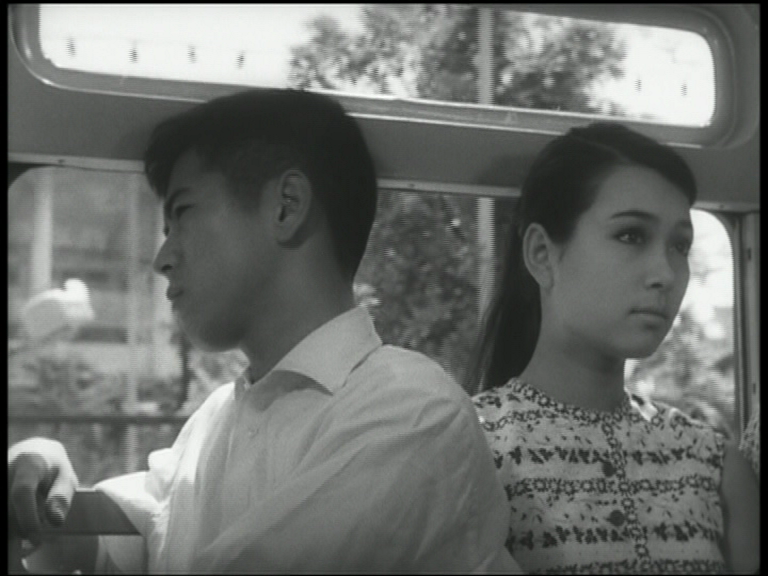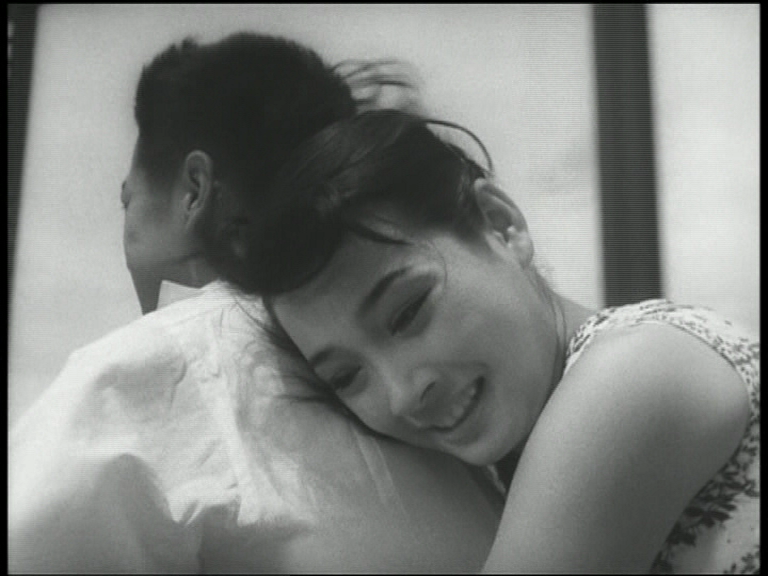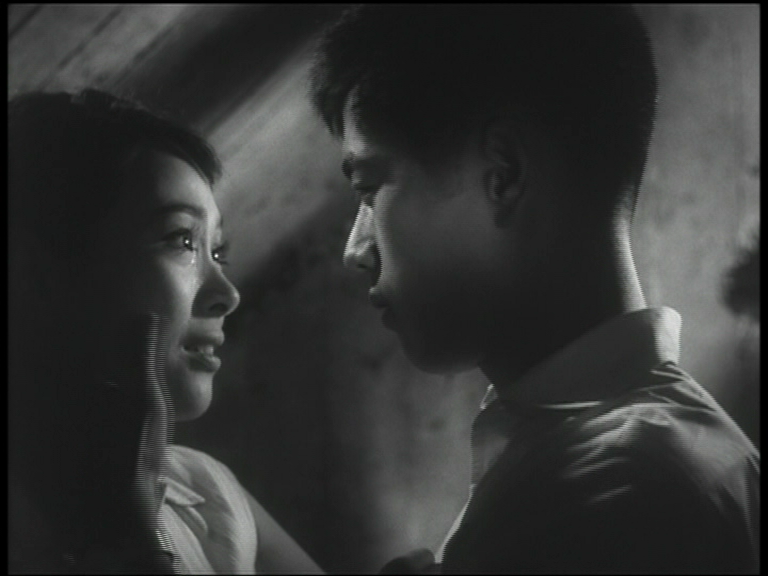« Coffee Break | Main | Irezumi »
August 16, 2011
Kisses

Kuchizuke
Yasuzo Masumura - 1957
Yume Pictures Region 2 DVD
Sweet is not the first word grabbed to describe a film by Yasuzo Masumura. Not as well known to western audiences as some of his peers, Masumura's reputation mostly rests on a handful of films that have received subtitled DVD releases. Blind Beast, from a story by Edogawa Rampo, emphasizes the twining of the erotic and the grotesque obsession of a blind sculptor and a young woman, while in Red Angel, Ayako Wakao finds danger everywhere in the World War II drama. Kisses may seem like an extraordinary film in the context of Masumura's career if only because the two main characters are relatively ordinary.
In his book that primarily covers Japanese filmmakers that emerged in the Sixties, Eros plus Massacre, David Desser quotes Nagisa Oshima: "In July, 1957, Yasuzo Masumura's Kisses used a freely camera to film the young lovers riding around in a motorcycle. I felt now that the tide of a new age could no longer be ignored by anyone, and that a powerful irresistible force had arrived in Japanese cinema."

Jonathan Rosenbaum provides a deeper look at Masumura's career. The neo-realistic influences are clear throughout Kisses, and a reminder that it was Italian neo-realism that provided one of the main influences for the French Nouvelle Vague. Rosenbaum's article is of interest in pointing out some of the similarities between several of Masumura's films and those of Hollywood filmmakers that the Cahiers du Cinema gang had championed. As Rosenbaum points out, Kisses was neither a commercial nor critical success at the time of release. I have to assume that the reason the film was produced, and assigned to Masumura as his debut was in response to the youth oriented films that Nikkatsu Studios released at about the same time.
The film covers a two day period where Akiko and Kinichi meet, separate, and finally come together again. Their respective fathers are both imprisoned, Akiko's for embezzling money to pay for his wife's medical treatment, Kinichi's for some never clearly explained election fraud. Kinichi sees Akiko berated by a prison clerk for not paying for her father's meals, and impulsively hands over enough money to cover the fees. Akiko chases Kinichi down to thank him. A bet at a bicycle race determines whether the two will spend the rest of the day together. Akiko wins the bet, and the pair spend the day at the beach, roller skating, eating, drinking and dancing. In addition to having their fathers in prison, Kinichi and Akiko are concerned with ways to come up with the 100,000 yen needed for their parent's release.
While the initial setup is contrived, what makes Kisses different from the Nikkatsu films is that the characters live in a mundane world. Kinichi, a university student, gets by working as a delivery driver for a bakery. Akiko works as a nude model for painters. The two live modestly in shabby quarters, when money, or more often the lack of money, dictates their lives. Unlike many youth oriented films where the parents either do not exist or are marginal, part of the narrative here is of children who seek to redeem their parents, in the moneyed sense of the word, and simultaneously prove their own worth, again in a literal sense.
The actors who played Akiko and Kinichi, Hitomi Nozoe and Hiroshi Kawaguchi, might well have been cast because they were the same age as their characters, 20 and 21. Both appeared in other Masumura films, together also notably in Giants and Toys, as well as Yasujiro Ozu's Floating Weeds. Both began their careers shortly before Kisses, and both cruelly died at relatively young, Kawaguchi at 50, and Nozoe at 58. There is very little about either actor in English, although Nozoe's most notable appearance would be as the victimized model in Blind Beast.
Where Kisses is different from other Masumura films, and other films centered on young people is the sense of reconciliation that concludes the story. While Masumura's aim was to remove the sentimental aspects from the source novel, the ending, even if it may be considered conventional, is still satisfying, perhaps because it suggests a hopeful future.

Posted by Peter Nellhaus at August 16, 2011 07:42 AM
